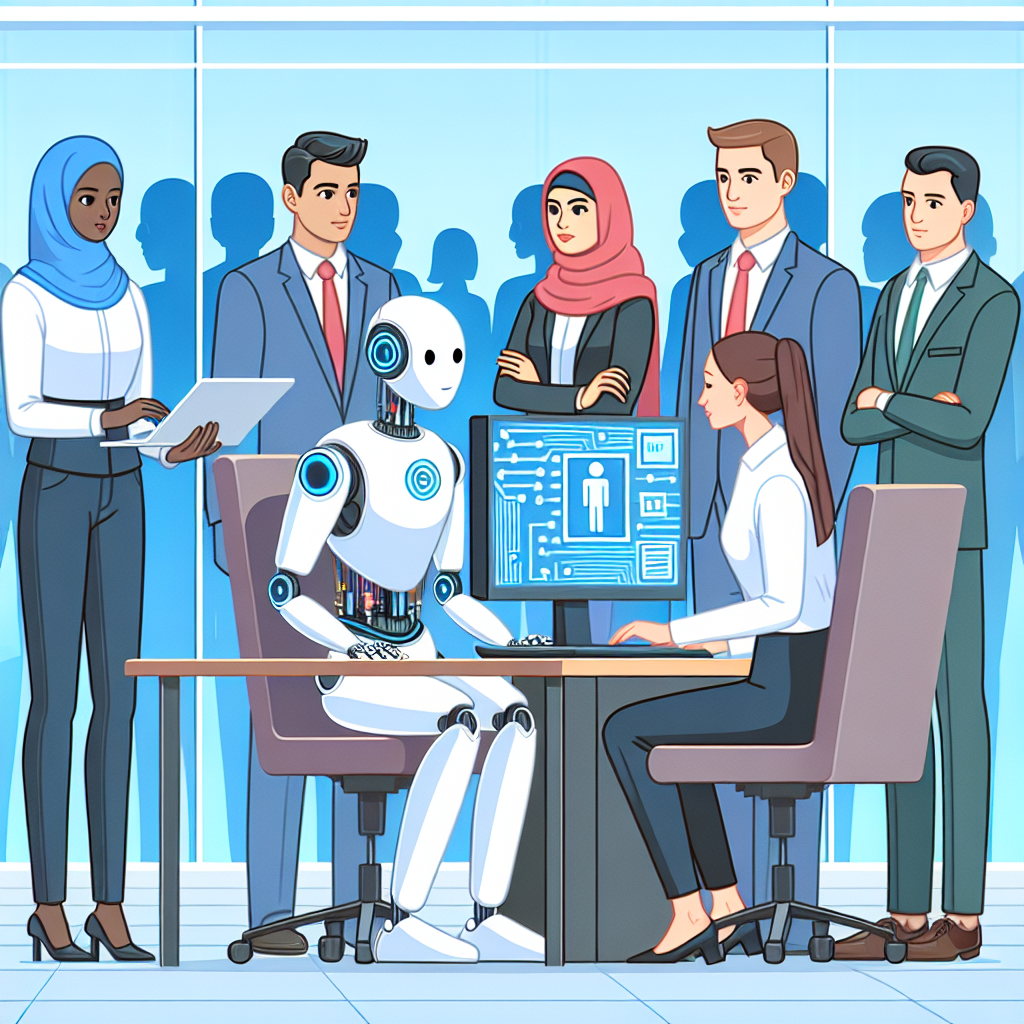AI in Human Resources: Streamlining Recruitment and Employee Engagement with Automation
Artificial Intelligence (AI) has been transforming various industries in recent years, and Human Resources (HR) is no exception. With the advancement of AI technology, HR departments are now able to streamline recruitment processes, improve employee engagement, and enhance overall organizational efficiency. In this article, we will explore how AI is revolutionizing HR practices and how organizations can leverage automation to drive success in recruitment and employee engagement.
Recruitment Automation
Recruitment is a critical function of HR, and it often involves time-consuming tasks such as screening resumes, scheduling interviews, and communicating with candidates. AI-powered recruitment tools can help streamline these processes by automating repetitive tasks and enabling HR professionals to focus on more strategic activities.
One of the key benefits of AI in recruitment is its ability to analyze large volumes of resumes quickly and accurately. AI algorithms can scan resumes for keywords, skills, and experience, allowing recruiters to identify the most qualified candidates more efficiently. This not only saves time but also improves the quality of hires by ensuring that only the most relevant candidates are considered for the position.
AI can also help HR departments improve candidate experience by using chatbots to engage with candidates and answer their questions in real-time. Chatbots can provide information about job openings, company culture, and application status, creating a more personalized and interactive experience for candidates.
In addition to screening resumes and engaging with candidates, AI can also assist in scheduling interviews and coordinating logistics. AI-powered scheduling tools can analyze calendars, availability, and preferences to find the best time slots for interviews, reducing the back-and-forth communication between recruiters and candidates.
Employee Engagement Automation
Employee engagement is another critical aspect of HR that can greatly benefit from AI technology. Engaged employees are more productive, motivated, and committed to their organizations, leading to higher retention rates and overall performance.
AI can help enhance employee engagement by providing personalized learning and development opportunities. AI-powered learning platforms can analyze employees’ skills, interests, and performance data to recommend relevant training courses, workshops, and resources. This personalized approach to learning can help employees develop new skills, advance their careers, and stay engaged in their roles.
AI can also be used to gather feedback from employees and measure their engagement levels. Employee engagement surveys and sentiment analysis tools can collect feedback from employees on a regular basis, allowing HR departments to identify trends, address issues, and take proactive steps to improve engagement.
Furthermore, AI can help HR departments automate employee recognition and rewards programs. AI algorithms can analyze performance data, milestones, and achievements to identify top performers and recommend personalized rewards, bonuses, or recognition initiatives. This can help boost morale, motivation, and loyalty among employees, leading to a more engaged and productive workforce.
Common FAQs about AI in Human Resources
Q: Will AI replace human recruiters in the future?
A: While AI can automate certain tasks and streamline recruitment processes, human recruiters play a crucial role in understanding the company culture, assessing soft skills, and building relationships with candidates. AI is more likely to augment human recruiters rather than replace them entirely.
Q: How can organizations ensure that AI-powered recruitment tools are unbiased and fair?
A: Organizations can mitigate bias in AI-powered recruitment tools by regularly auditing algorithms, monitoring outcomes, and providing diversity and inclusion training to employees. It is important to ensure that AI algorithms are trained on diverse and representative data sets to avoid perpetuating bias.
Q: How can AI improve employee engagement in remote or hybrid work environments?
A: AI can help improve employee engagement in remote or hybrid work environments by providing virtual team-building activities, personalized learning opportunities, and real-time feedback mechanisms. AI-powered tools can also analyze employee sentiment and engagement levels to identify issues and proactively address them.
Q: What are the potential risks and challenges of implementing AI in HR?
A: Some potential risks and challenges of implementing AI in HR include data privacy and security concerns, algorithmic bias, lack of transparency, and resistance from employees. It is important for organizations to address these challenges proactively and ensure that AI is used ethically and responsibly.
In conclusion, AI is revolutionizing HR practices by streamlining recruitment processes, improving employee engagement, and enhancing organizational efficiency. By leveraging automation and AI technology, HR departments can drive success in recruitment and employee engagement, leading to a more engaged, motivated, and productive workforce. As AI continues to evolve, it is essential for organizations to embrace these technological advancements and adapt their HR strategies to stay competitive in the ever-changing business landscape.

